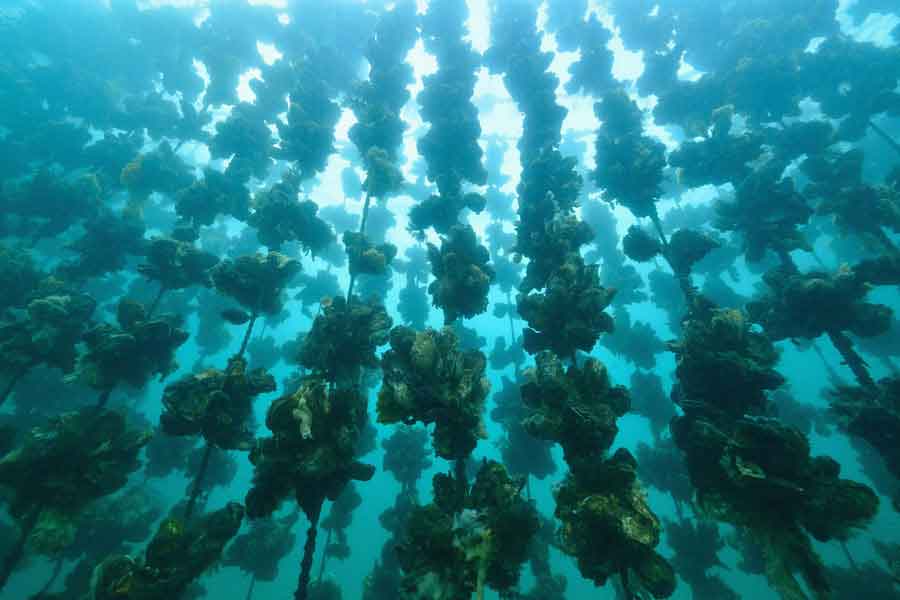
In the 1800s, it was common for a gaucho from the Argentine Pampas to kill a wild cow to have a barbecue, leaving the rest of the animal unused. At that time, it was believed that cows would never run out. Shortly after, the population of wild cows started to decline, endangering the species. That’s when humans learned to raise them in pens, increase their offspring, and optimize the product.
Today, two hundred years later, humans are doing the same with the sea: we take from it what we need, assuming that the sea is inexhaustible. Soon after the start of large-scale commercial fishing, many species, such as hake, began to disappear or at least become scarce.
Some countries, aware of this reality, started cultivating the sea years ago. The results have been optimal. Marine organisms have very high reproduction rates due to high mortality among juveniles caused by predators. For example, a mussel produces around twelve million tiny eggs in a single spawning event. The vast majority of these individuals will not reach adulthood, but with human care, they can be protected from being eaten and reach maturity. For this reason, the Galician estuaries have an annual exportable production of 100,000 tons of cultivated mussels.
This system is not new; the Romans cultivated oysters in the 1st century BC. In Japan, mariculture of crustaceans, fish, mollusks, and algae has been practiced for hundreds of years. In the 19th century, France began cultivating flat oysters. The United States, England, Norway, and Chile have also embraced semi-captive salmon farming.
These techniques bring incredible benefits: an important source of food for an increasingly needy world, lower cost of the final product as it is more economical than going out to catch it, employment for coastal communities, and, most importantly, the sea remains untouched. Its species achieve ecological balance on their own, and the damage is halted. Countries like Argentina can reap all these benefits thanks to their extensive coastline with diverse climates that allow for almost any type of cultivation. However, for that to happen, we must first understand a sea that we rarely pay attention to unless we’re on vacation.
«You cannot defend what you do not love, and you cannot love what you do not know.»

